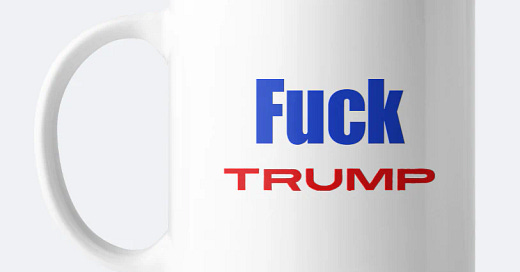Some Thoughts on the Election
It’s been a little more than a week since, well, you know, and after taking some time to wander in the desert (Death Valley is stunning this time of year), I’ve decided to share some takes. First and most importantly, 90-95% of the story behind Harris’s loss is about two things: the economy—specifically, inflation—and the rebound of public opinion against the incumbent party. These are structural forces that shape the outcome of elections in America and around the world at a scale far beyond specific policy issues or tactical campaign decisions. It’s hard to see a six-point pro-Trump swing, relative to 2020, and conclude that anything but such structural forces could have produced the outcome. Maybe if Kamala had gone on Rogan’s podcast she would have won a few more votes. Maybe if the Democrats had pivoted left on Gaza the margin in Michigan would have been a little thinner. But none of this would have changed the result.
Second, and notwithstanding the first point, I and others are due for some reconsideration of sexism’s role in presidential elections. Following Hillary’s loss in 2016, I pushed back against the analysis that assigned most of the blame for her loss to misogyny. There was and is reliable evidence that women do not fare worse than men when they run for office, and I was wary of embracing a narrative whose logical conclusion was that we (i.e. Democrats) should never nominate a woman for the presidency. I will also admit to indulging some oppositional defiant tendencies in the face of the very annoying anti-Bernie contingent, which was desperately (if understandably) trying to deflect blame for Trump’s victory.1 I later shifted to the softer position that while sexism kept Hillary out of the White House, that largely reflected the election’s extremely thin margin and Hillary’s specific weaknesses that, while tied to her femininity, would not damage other potential female candidates. (For example: her perceived dishonesty/inauthenticity and her lack of credibility with some segments of the working class.)
I still believe this to a substantial extent. Kamala was a stronger candidate than Hillary and suffered less from sexism than Hillary, and there is no plausible argument that she would have won if she had been a man. But the growing gender gap in the electorate and, more broadly, the growing extent to which political positions have acquired a gendered association (with left-wing positions now reading as more female than they used to and right-wing positions as more male) has persuaded me that sexism measurably drives voting patterns at the margins, and running a woman for the presidency will, all else equal, cut a party’s vote share by several tenths of a percentage point. Unfortunately, this means exercising caution in voting for women in the primary. If the general election is likely to be close—which it almost always will be—then sacrificing a fraction of a percentage point in the popular vote at the outset is hard to justify. It may be worth it in some cases—election cycles take place in different environments, and there are plenty of male candidates who will lose a general election—but we should at minimum consider which women are more and less vulnerable on the basis of their gender. Elizabeth Warren at the top of the ticket (high voice, perceived as preachy and supercilious) is a much bigger handicap than Gretchen Whitmer (lower voice, more conventionally feminine and attractive). I reiterate that this conclusion brings me no pleasure. It is wrong to vote against a woman purely because of her gender. But I place overriding importance on winning elections, and it strikes me as needlessly quixotic to ignore the electorate’s sexism except to bemoan it from time to time (which is the explicit stance of some Hillary supporters I know).
Speaking of Hillary, 2016 is looking more and more like a pivotal year in American politics. Trump’s win firmly swung the Republican Party in a very ugly direction that at this point has been locked in for at least another decade. Hillary’s tacking left on cultural issues in response to Bernie’s primary challenge, and, later, progressives’ reaction to the Trump presidency, swung the Democratic Party towards electorally damaging territory. Then there’s the Supreme Court, which went from a 5-4 split with a relatively moderate swing vote to a 6-3 split with no swing vote. It is now little more than a Republican policymaking institution, and it will remain that way for a generation.
Still, I have hope. Pivots in American politics are rarely permanent. (And the ones that have lasted are uniformly good: abolition, the end of Jim Crow, the opening up of civic and economic life to women, gay marriage.) As long as we continue to have free and fair elections, and as long as the courts maintain the rule of law, Democrats will again win power where they have lost it at the state and federal level. The prerequisites here are not a given under a Trump presidency, and that is genuinely terrifying, but they are far more likely to hold than not. American history repeatedly demonstrates the endurance of liberal institutions and the long-term triumph of moral clarity. It will take more than one bad election decided by inflation to change my faith in that.
Would Bernie have won in 2016? Hard to know. What we do know is that Hillary lost, and nominating her was a mistake.

